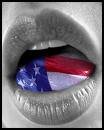
On Monday April 23, former Russian President Boris Yeltsin died in Moscow. Yeltsin was having severe health problems and excessive fondness to alcohol.
He will be best remembered by the efforts he made to make Russia a democratic country, instead of continuing the communist rule over the people. He did in fact eliminate censorship of the news media, tolerated public criticism and steered Russia toward a free market.
His leadership was erratic and often crude, and as a democrat he often ruled in the manner of a czar. He showed no reluctance to use the power of the presidency to face down his opponents, as he did in 1993, when he ordered tanks to fire on a Parliament dominated by openly seditious Communists, and as he did again in 1994, when he embarked on a harsh military operation to subdue the breakaway republic of Chechnya. It began a costly and ruinous war that almost became his undoing and that was ferociously revived in 1999 and still being waged when he resigned that year.
His relationship with the United States was a complicated one. President Clinton seized on the fall of the Soviet Union as an opportunity to advance American interests, and he and Mr. Yeltsin maintained a strikingly good rapport.
Although he made some "unpopular" decisions and may not be liked because people think that during his reign he corrupted Russia's Parliament also he still made changes that not only made for the people but freed the people of Russia.
When I was seven in 1993, Yeltsin a New Constitution in Russia was approved that guaranteed private property, free enterprise and individual rights.

No comments:
Post a Comment